Market Value Assets: How Kansas City is Leading the Way in Recognizing Non-Traditional Learning Experiences
📸 by Ross Parmly on Unsplash
Welcome aboard Micro-credential Multiverse Airlines!
We are thrilled to provide service from Dallas to Kansas City, where the Kauffman Foundation is supporting a range of exceptional initiatives that establish a robust talent pipeline for learners and employers; enabled by micro-credentials!
As I escaped the increasingly unreasonable heat of Dallas and boarded my plane to the Midwest, I was eager to immerse myself in the dynamic culture of innovation and education that Kansas City has to offer. This wasn’t my first trip to the region, and as I looked out my window at the vast expanse of rich farmland brought to bear by skilled labor, I knew I was about to experience something extraordinary.
Kansas City: An Ideal Catalyst for Micro-Credentials
The Ewing Marion Kauffman Foundation, visit Kauffman.org to learn more
Kansas City has a rich history of innovation and a strong commitment to education, which makes it an ideal region to lead the way in recognizing learners through micro-credentials. The Ewing Marion Kauffman Foundation, a city treasure embodying those same unifying principles, has long been a leader in supporting entrepreneurship and education initiatives. The foundation has championed efforts to recognize and support non-traditional learning experiences, like creating the KC Scholars, Great Jobs KC, Real World Learning, and ProX programs.
This focus on innovative education also happens to align well with the emerging need to recognize skills and competencies with greater resolution via digital micro-credentials. This shift in the way learning is recognized enables learners to better understand and communicate their valuable skills (increasingly through “non-traditional learning” experiences) with outside stakeholders and leverage those verifiable experiences to unlock employment and academic opportunities.
Essential Questions
Which skills and competencies should we prioritize to have the most significant impact at scale?
And more importantly, how can we achieve that goal while reducing the burden on credential issuers and simplifying the process for learners and employers?
Market Value Assets + Micro-credentials
To tackle this challenging and complex task, The Ewing Marion Kauffman Foundation partnered with Micro-credential Multiverse to develop a broadly accessible MVA-aligned micro-credential ecosystem framework and model that supports the implementation of a scalable talent network that connects well-qualified learners with local and regional employers.
So, what exactly is an MVA?
An MVA, or “Market Value Asset” is an industry-valued and recognized experience proven to reduce friction for learners transitioning from school to postsecondary education and/or the workplace. These experiences include internships, client-connected projects, entrepreneurial projects, regionally vetted industry-recognized credentials, and college credit-yielding academic experiences.
Where do micro-credentials come in?
Once learners complete a work-relevant experience, such as an internship or a client-connect project, they are awarded a personalized, shareable, and digital micro-credential, illustrating their unique and valuable accomplishment.
Each verifiable micro-credential includes personalized evidence, illustrating and substantiating the unique experience gained by the learner, along with the skills and competencies demonstrated during the work-relevant experience.
As a result of this process, micro-credentials aligned with MVAs make it easier for learners to signal their valuable skills and competencies to help them get their foot in the door, pivot into a new role, or pursue a promotion. Simultaneously, this ecosystem employers by introducing a powerful new way to discover well-qualified candidates, validate role-relevant experiences, and quickly respond to rapidly evolving market demands.
Types of MVAs
Internships
Learners perform meaningful job tasks at a worksite or approved location under the guidance of a qualified supervisor.
Client-Connected Projects
Learners analyze and solve authentic problems, collaborating with other learners and professionals from industry, not-for-profit, civic, or community-based organizations.
College Credit
Learners earn nine (9) or more hours of college-level credit, progressing toward an industry-recognized degree or credential.
Regionally-vetted IRCs (Industry-recognized Credentials)
Learners earn a regionally-vetted, industry-recognized credential from an accredited provider
Current lists published by state education departments are reviewed with employers and validated for applicability and relevance. A small number of regional ‘custom’ credentials may be identified that also become part of this category.
Entrepreneurial Experiences
Learners identify a compelling social or market problem and mobilize resources to research and solve it.
Through collaboration with various stakeholders, students evaluate prototypes, implement solutions, reflect on progress, and adapt to potential challenges.
The outcome of these entrepreneurial experiences at the MVA level includes a comprehensive market and stakeholder research summary, a meticulously crafted business plan that assesses the costs and benefits of their solution's development or operation, and feedback from external stakeholders obtained through pitch opportunities (such as exhibitions or shark-tank events).





Micro-Credentials 101
To catalyze this shift to MVA-aligned micro-credentials, I had the pleasure of attending the April Communities of Practice event at the Kauffman Foundation on April 20th, 2023. During this exciting event, I demystified the wild world of micro-credentials in a room full of enthusiastic educators.
During the discussion I covered a variety of topics, including:
The RWL Commemorative Digital Badge was created by Micro-credential Multiverse for the RWL Communities of Learning Event.
What are micro-credentials?
How do micro-credentials work?
Who’s involved in the micro-credentialing process?
Why do micro-credentials matter?
I also covered a variety of adjacent topics, including:
the role of metadata
the functional benefits of micro-credentials
the "What, How, Why" model
common barriers to adoption and success, and
the main differences between a digital badge and a micro-credential.
Engaging with passionate educators who recognize the potential for a well-designed micro-credential ecosystem to support their learners' educational and career journeys was a thrilling opportunity, reminding me of my own personal career pivot almost ten years ago to the day.
And, did I mention that all the attendees walked away with a digital badge? (See above)
The Deck: Bringing Valuable Learning Experiences into Focus
Below, I’ve included the slide deck I used to facilitate my discussion during the Communities of Learning event. As you peruse, you’ll encounter a page inviting folks to test their knowledge and earn the digital badge (pictured above); let’s talk about my methodology for the chat while providing some behind-the-scenes context.
You see, micro-credentials are a notoriously challenging topic to introduce to a group of passionate practitioners ready to roll their sleeves up and GSD “get… stuff… done". Often, the technical qualities of a well-intended micro-credential ecosystem overshadow the practical impetus for its adoption. So, rather than subject my audience to a long-winded explanation filled with jargon-heavy rabbit holes, I deployed what I call “The Monopoly Rule.”
What is the Monopoly Rule?
The Monopoly Rule is a strategy I invented to avoid overly describing and explaining the details of something before simply “playing a round” and teaching the rules through doing.
In service to the “Monopoly Rule,” discussion attendees were quizzed on a variety of topics covered during the discussion and, upon completion, were awarded a unique digital badge celebrating their unique experience while commemorating their newfound knowledge (A “low stakes” illustration of the MVA-aligned micro-credential program).
Ultimately, my goal was to leave the attendees with two of the most important things anyone could hope to achieve in during a 60-minute introduction:
The confidence to get started.
The competence to go in the right direction.
Kansas City: Leading the Way
Upon returning to Dallas, I reflected on the invigorating culture of innovation and education I had encountered in Kansas City. The city's storied entrepreneurial and educational history and enthusiastic community that makes it a prime candidate for spearheading the recognition of learners through micro-credentials.
The Real World Learning Initiative, with the support of the Ewing Marion Kauffman Foundation, in partnership with Micro-credential Multiverse, is a remarkable illustration of how a well-executed micro-credential ecosystem can revolutionize the way we acknowledge skills while galvanizing a culture of lifelong learning.
As we continue to explore new ways of utilizing the power of micro-credentials, I’m excited to see what the future holds for learners, educators, and employers alike - within the Kansas City region and beyond.
If you enjoyed this article, please consider:
🕊 Following me or my new company Micro-credential Multiverse on LinkedIn.
💌 Subscribing to my newsletter on LinkedIn to get these posts delivered conveniently to your inbox.
🌎 Sharing this article with someone in your network.
Photo Credit(s)
📸 by Brooke Cagle, Magnet.me, Christina @ wocintechchat.com, Tim Gouw, LinkedIn Sales Solutions, Ross Parmly via Unsplash




